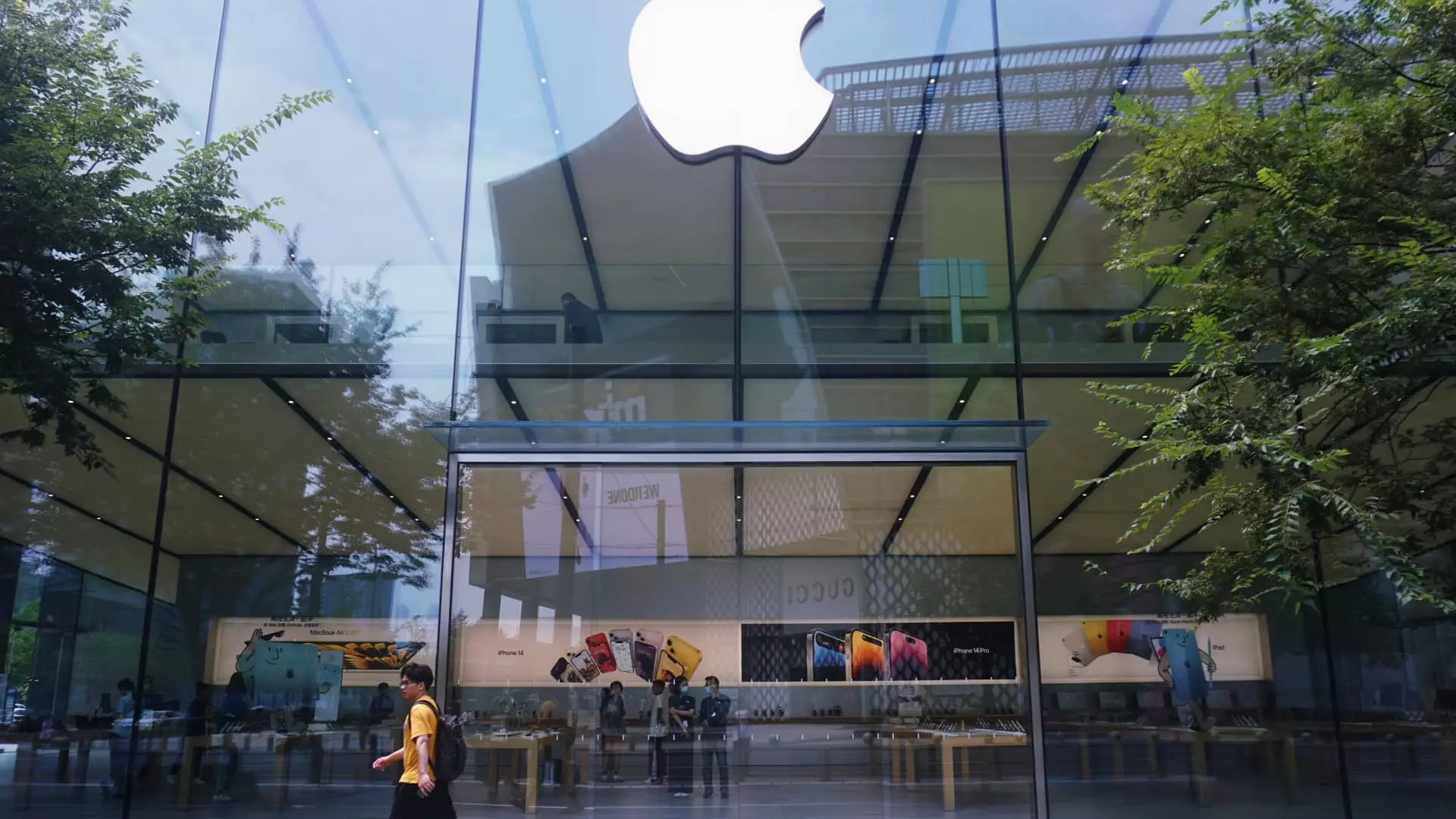Despite years of speculation and anticipation, Apple’s entry into the foldable smartphone market remains shrouded in mystery and delays. Industry insiders and market analysts agree that the tech giant’s much-anticipated foldable device could still be months—or even years—away from debut. Yet, beneath this veneer of uncertainty lurks a significant geopolitical and industrial shift: the rising influence of Chinese suppliers, particularly Lens Technology. The industry has begun to recognize that the so-called “wait-and-see” approach might be a strategic maneuver rather than mere procrastination. Apple’s silence surrounding the foldable has arguably allowed Chinese manufacturers to position themselves as the backbone of the future supply chain, subtly asserting dominance in a space that Apple, in typical style, has yet to confirm.
This calculated delay can be interpreted as a reflection of Apple’s careful approach to innovation, but also as a sign that the company is wary of overreliance on untested supply chains and geopolitical risks tied to Chinese manufacturing hubs. The broader implication is that the future of foldable technology is being quietly contested—not just through product development, but via geopolitical strategies that aim to consolidate manufacturing supply chains outside traditional Western control.
Chinese Firms Riding the Wave of Innovation and Capital Accumulation
Lens Technology’s recent public offering in Hong Kong epitomizes this strategic shift. The company, which is deeply integrated into the supply chain of global tech giants, has seen extraordinary enthusiasm from investors, including prominent figures like Steve Cohen. The infusion of nearly $610 million HKD, combined with foreign institutional backing, underscores China’s aggressive push into high-tech manufacturing and innovation. The company’s statement about dedicating a significant portion of funds to foldable screen R&D highlights a clear intention to capitalize on future demands driven by giants like Apple.
This move signifies more than corporate expansion; it signals a broader push for technological sovereignty by Chinese firms eager to carve out a significant role in the next generation of mobile devices. Despite the vague references to “Customer A” and “Customer B” in their disclosures, the relationships are indicative of a long-standing, symbiotic connection with U.S.-based and Asian clients. The underlying message is that Chinese companies like Lens Tech are positioning themselves as indispensable global suppliers, capable of providing cutting-edge display technology, including ultra-thin glass for foldable devices.
What becomes glaringly apparent here is that China is leveraging its manufacturing prowess, coupled with strategic capital investments, to challenge Western dominance in high-end tech manufacturing. They appear poised to not only fill the supply chain gaps created by Apple’s cautious rollout but to eventually shape the industry’s standards on their own terms. This could potentially weaken Apple’s control over the innovation pipeline, as reliance on Chinese suppliers grows.
The Shift from dependence to strategic autonomy
Apple’s strategic silence about its foldable plans might be a calculated attempt to maintain an element of surprise while avoiding premature exposure to supply chain risks. But the reality is that the company’s reliance on entities like Lens Technology could become a double-edged sword. As Chinese firms enhance their R&D capabilities and expand overseas factories—such as those in Vietnam and Mexico—the balance of power shifts ever more toward Beijing’s industrial ecosystem.
The increasing de-linkage from traditional Western manufacturing dependency isn’t just a matter of supply chain resilience; it’s a rallying cry for strategic independence. For the center-right wing, this situation underscores the importance of technological sovereignty—ensuring that Western-leaning corporations and governments are not left hostage to Chinese suppliers or geopolitical upheavals. It fosters a fairer competitive environment, encouraging innovation and diversification outside the confines of Chinese dominance.
Furthermore, the potential for Lens Tech to benefit from other high-tech growth sectors such as AI glasses and robotics suggests that the Chinese tech ecosystem is expanding beyond traditional smartphone components. This diversification could serve as a catalyst for the broader digital economy in the West, provided these companies are encouraged to maintain open and fair trade policies rather than falling into protectionist traps.
The Future of Innovation and Geopolitical Realignment
With Chinese firms increasingly capable of delivering high-end components like ultra-thin glass, the pressure is mounting on Western tech giants to rethink supply chain strategies. Apple’s apparent patience might be driven less by technological limitations and more by geopolitical calculus. The ongoing struggle for technological supremacy isn’t merely about product features; it’s about controlling the global digital infrastructure and the economic influence that comes with it.
While the West’s focus often remains on regulatory hurdles and privacy concerns, it must also confront the strategic challenge posed by China’s relentless push for technological independence. For policymakers and industry leaders aligned more with center-right liberalism, protecting national technological interests while fostering open, competitive innovation is the optimal path forward. The race toward a foldable future isn’t just about consumer convenience; it’s about shaping the economic and geopolitical landscape for decades to come.
In the end, Apple’s restraint may be less about innovation delay and more about strategically allowing Chinese manufacturing giants to develop and refine technologies that could, in time, rival or even surpass established Western standards. For Western nations and corporations seeking to maintain a share of this rapidly evolving digital economy, this reality calls for a balanced approach—one that promotes innovation, safeguards sovereignty, and recognizes the emerging power of Chinese technological industrialism.

